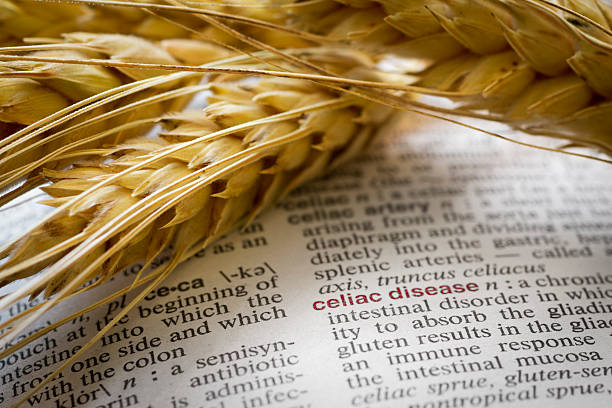Can You Eat Wheat if You Have Celiac Disease?
Introduction:
If you’ve been diagnosed with celiac disease, you may have wondered about the impact of wheat on your health. Celiac disease is an autoimmune disorder triggered by gluten consumption, a protein found in wheat, barley, and rye. For individuals with celiac disease, consuming wheat can lead to various adverse health effects. In this article, we will explore the question, “Can you eat wheat if you have celiac disease?” and delve into the complexities surrounding this topic.
Can You Eat Wheat if You Have Celiac Disease?
Celiac disease is a condition that requires strict adherence to a gluten-free diet. Gluten, found in wheat, triggers an immune response in individuals with this disease, leading to damage to the small intestine. Consequently, eating wheat can cause a wide range of symptoms and complications for those affected by celiac disease. Here are some important points to consider:
1. The Link Between Celiac Disease and Wheat Intolerance
Gluten intolerance, a protein found in wheat, characterizes Celiac disease. When individuals with celiac disease consume wheat, their immune system reacts by attacking the lining of the small intestine. This immune response leads to inflammation and damage, preventing the proper absorption of nutrients. Consequently, it is essential for individuals with gluten intolerance to eliminate wheat from their diet.
2. Adverse Effects of Consuming Wheat for Individuals with Celiac Disease
Consuming wheat when you have celiac disease can result in a variety of symptoms and complications. These may include abdominal pain, bloating, diarrhea, fatigue, weight loss, nutrient deficiencies, and even long-term complications such as osteoporosis and an increased risk of certain cancers. Therefore, it is crucial to strictly avoid wheat-containing products.
3. Hidden Sources of Gluten
While eliminating obvious sources of wheat like bread, pasta, and pastries may seem straightforward, there are hidden sources of gluten that individuals with gluten intolerance must be vigilant about. These include sauces, dressings, soups, and processed foods that may contain wheat as a hidden ingredient. It is important to carefully read food labels and choose certified gluten-free products.
4. Safe Wheat Alternatives for Celiac Disease Sufferers
Just because you have celiac disease doesn’t mean you have to give up all grains. There are several gluten-free alternatives available that can be enjoyed safely. Some popular options include quinoa, rice, corn, millet, and amaranth. These grains provide essential nutrients and can be used as substitutes in recipes that traditionally call for wheat.
5. Navigating Social Situations and Dining Out
Managing celiac disease involves more than just avoiding grain in your own kitchen. It can be challenging to navigate social gatherings and dining out while adhering to a gluten-free diet. Communicating your dietary needs to friends, family, and restaurant staff is crucial. Many restaurants now offer gluten-free menu options or can accommodate special dietary requests, making it easier to enjoy meals outside the home.
6. Importance of Consulting with a Healthcare Professional
If you have been diagnosed with celiac disease or suspect you may have it, it is important to consult with a healthcare professional, such as a gastroenterologist or a registered dietitian. They can provide you with accurate information, support, and guidance on managing your condition effectively.
Frequently Asked Questions (FAQs)
1. Q: Can small amounts of wheat be tolerated by individuals with celiac disease?
A: No, even small amounts of wheat can trigger a harmful immune response in individuals with gluten intolerance. It is essential to completely eliminate wheat from the diet.
2. Q: Is gluten-free labeling on food products reliable?
A: Gluten-free labeling can be trusted, but it’s still important to read labels carefully. Look for certifications from reputable organizations to ensure the product is truly gluten-free.
3. Q: Can celiac disease develop later in life?
A: Yes, celiac disease can manifest at any age. It is possible for individuals who previously consumed wheat without issue to develop an intolerance later in life.
4. Q: Are oats safe to consume for people with celiac disease?
A: While oats themselves are gluten-free, they are often cross-contaminated with wheat during processing. Certified gluten-free oats are available and can be safely consumed.
5. Q: Can celiac disease be outgrown or cured?
A: Celiac disease is a lifelong condition. Once diagnosed, individuals must maintain a strict gluten-free diet to manage their symptoms and prevent complications.
6. Q: Can someone with celiac disease have an occasional cheat meal?
A: No, even occasional consumption of wheat can have detrimental effects on individuals with celiac disease. Strict adherence to a gluten-free diet is crucial.
Conclusion:
In conclusion, if you have celiac disease, it is imperative to eliminate wheat from your diet. Consuming wheat can lead to a cascade of health issues and complications. However, with the wide availability of gluten-free alternatives and increased awareness of celiac disease, managing this condition has become more manageable. Remember to consult with healthcare professionals, read food labels diligently, and communicate your dietary needs when dining out. By following a gluten-free lifestyle, you can effectively manage celiac disease and enjoy a healthier life.
So, Can you eat wheat if you have gluten intolerance? The answer is a resounding no. Put your health first and explore the delicious world of gluten-free options available to you.




